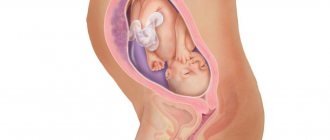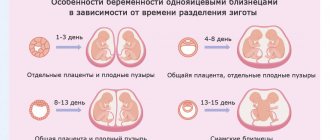This is one of the most common reasons for contacting a child psychologist. Children eat little or poorly from about one year to 12 years. Then mothers either begin to complain that they don’t leave the stove at all, or they realize that the girl has driven herself to the point of exhaustion and it’s time to treat anorexia nervosa.
But at different ages, the concept of “eating poorly” means different things. I will add a little psychoanalysis to ordinary things, I hope it will become a little clearer and calmer for you. You'll see, you'll get away from the baby, and his digestion will improve.
Content
- Types of appetite disorders
- Prevention of appetite disorders in children
- Causes
- Consequences of long-term eating disorders
- Treatment
Appetite performs a regulatory function in the body, signaling the need to replenish nutrients. Appetite is associated with the work of the food center, which is located in the hypothalamus and cerebral cortex. It is in these areas that food-related impulses are processed and where satiety signals come from. One of the factors that causes the desire to eat is also changes in blood sugar levels. Source: Your Child's Health. The latest reference book./Under the rivers. V.A.Alexandrova. Eksmo Publishing House, 2003
Children and vegetarianism
Most experts believe that a child's food should be mixed (meat-dairy-vegetable) with sufficient amounts of vitamins and minerals, and do not recommend vegetarianism for children. Plant foods have a number of advantages, but cannot replace meat, fish, milk, and eggs in a child’s diet. These products contain substances necessary for the child that are not found in plant foods. First of all, these are complete animal proteins, some vitamins and minerals: B vitamins, vitamin D, calcium, iron, zinc. Fish is a source of vitamins PP, group B, as well as phosphorus. A lack of these substances threatens the child with anemia and decreased hemoglobin, which in turn leads to a deterioration in the supply of oxygen to tissues. Vegetarianism is contraindicated for children with low hemoglobin levels.
Proponents of vegetarianism believe that a growing body feels better in the absence of meat food. It has been proven that people who adhere to vegetarianism are less likely to develop diseases of the cardiovascular system and certain types of cancer. Vegetarians practically do not suffer from obesity. A vegetarian diet is high in dietary fiber, vitamin C and beta-carotene. This diet does not contain animal fat - a source of cholesterol and saturated fats, which cause the formation of specific deposits on the walls of blood vessels - atherosclerotic plaques, which narrow the lumen of the vessel and impair blood circulation in tissues and organs.
Families that embrace vegetarianism should take special care to ensure that the child’s body receives all the necessary substances.
A lack of any nutrients can affect growth retardation, physical and mental development, as well as disruption of the formation of the bone skeleton and teeth. This is especially true for children of primary school age.
Types of appetite disorders
Anorexia in a child may manifest itself as:
- hyporexia – loss of appetite;
- hyperrexia – its increase in appetite;
- Bulimia – uncontrollable desire for food. With this disorder, the child is not able to control the volume and composition of food eaten;
- anorexia - almost complete refusal to eat. One of the most dangerous violations. Can lead to dire consequences: organ dystrophy, metabolic disorders and even death;
- pararexia – a significant change in taste preferences. The child may have a desire to eat something that is not eaten, for example, chalk or clay. Pararexia often indicates the absence of an element (calcium, potassium, iron, etc.) that is extremely necessary for the child’s body in the daily diet.
Aggressive child
Most often, increased aggressiveness in a child has very specific reasons. First of all, it is important to clearly identify which area they belong to, and what kind of help will bring the most effective result: medical or psychological.
It is generally accepted that aggression is inherent in humans by nature itself, as one of the aspects of survival. From the moment of birth until old age, people are characterized by reactive aggression - when there is a threat or danger to life, freedom or their property. With envy, jealousy or revenge - feelings that are inherent in any person, regardless of gender and age. This type of aggression still exists today. We all, to one degree or another, struggle for life at any time.
Both boys and girls try to find out who is stronger, faster, more dexterous as soon as they begin to communicate with their peers. From time immemorial, various competitions or fights existed between men. In the first case, so-called play aggression helped. It is not destructive in nature and was used to demonstrate skill and dexterity, without hatred or destruction. It is this type of aggression that children constantly demonstrate, starting from kindergarten age. Moreover, regardless of gender.
One cannot but agree that a child’s play aggression is as normal as it is widespread. Willingness to compete and perseverance in everyday struggle are not the worst qualities, especially for a boy.
All other types of aggression are a negative phenomenon, and, often, depending on the character of the child, they can take expanded and even exaggerated forms.
Types of childhood aggression:
- Direct aggression. When it is directed at someone specific who causes concern and provokes the manifestation of negative feelings.
- Indirect aggression. Most often it is aimed at objects that are accessible and safe for splashing out negative emotions. For example, on children who are younger in age or physically weaker, or on soft-spoken relatives and grandmothers who feel sorry for their grandchildren.
- Physical aggression – when a child fights or a child bites.
- Verbal aggression – calling names, threatening and shouting.
- Auto-aggression is one of the most severe forms of aggression in children. May be accompanied by verbal self-deprecation, scratching of the skin, and self-harm.
Causes of increased aggressiveness in children
Increased aggression, like many other common childhood problems, can come from psychological aspects, such as family relationships, as well as from medical aspects.
In terms of psychological aspects, aggression occurs when a child has a heightened sense of danger, leading to aggression on the part of the child as a means of defense and reflection of his surrounding world. In his own family or in the social environment: in kindergarten or at school. Aggressive behavior in children can be provoked by a lack of parental love, parents’ reluctance to devote time to them and delve into their problems, disrespect for the child’s personality, and lack of support. Or the use of strict authoritarian upbringing together with an unfavorable emotional atmosphere in the family or overprotection. In these cases, increased aggressiveness is essentially a cry for help, fear and distrust of the world. And is used as personal protection.
If the medical aspect is considered, then increased aggressiveness is quite often characteristic of children with increased intracranial pressure. Increased intracranial pressure in a child may be a consequence of a birth injury or hypoxia, or some acquired condition (for example, asphyxia).
Also, increased aggressiveness can be a consequence of more serious medical problems, including autistic disorders, childhood mental disorders, including schizophrenia. But, fortunately, this happens quite rarely.
Before taking any action against aggression, it is first necessary to understand the cause of the problem. To do this, the child is invited to a psychologist, neurologist, psychiatrist, often to a consultation - if we are talking about serious cases of aggressive behavior - so that specialists can outline the boundaries of psychological and medical problems and propose measures that will bring a positive result.
Prevention of appetite disorders in children
- Diet. The daily amount of food should be divided into 3-5 meals. It is advisable that breakfast, lunch and dinner take place at the same time. The child’s body quickly gets used to the diet, and an appetite appears before the next meal.
- A diet containing all the necessary substances. With proper nutrition, the child’s body receives the elements necessary for growth and vital activity, which is an excellent prevention of not only appetite disorders, but also other diseases associated with it, for example, obesity. A regular diet must include vegetables and fruits, some cereals, meat and fish. The amount of starch and saccharides should be minimal.
Is there a risk of malnutrition?
There is little risk that a child who restricts his diet will lack nutrients. The child's body will not starve if food is available. The need for a certain amount of food is expressed in thermal units - calories (the amount of heat that can increase the temperature of 1 liter of water by 1 ° C). The Institute of Nutrition of the Academy of Medical Sciences of Russia recommends caloric expenditures for children of different ages:
► From 3 to 5 years - 1500 kcal.
► From 5 to 8 years - 1800 kcal.
► From 8 to 12 years - 2000 kcal.
► From 12 to 16 - 2400 kcal.
Causes
The loss or sharp increase in food needs in children can be associated with a whole range of factors:
- deviations may be symptomatic. For example, when infants are teething, loss of appetite is quite normal. Loss of desire to eat also occurs during the acute stage of influenza or ARVI, and this is absolutely normal. The child’s body directs all resources to fight the disease, temporarily suppressing the digestive function. You should not force-feed a sick child even the healthiest food - when things get better, the appetite will be completely restored. Source: https://articles.komarovskiy.net/ya-kushat-ne-xochu.html E.O. Komarovsky I don’t want to eat... 01/18/2007
- diseases of the digestive system. Various types of gastritis, duodenitis and other similar pathologies have a significant impact on the child’s eating behavior.
- anemia, that is, a lack of hemoglobin in the blood - cells that carry oxygen. The presence of anemia can accompany a number of diseases. This condition in a child requires urgent contact with a specialist and a full examination.
- disorders in the endocrine system. Diabetes mellitus, thyroid disease – these endocrine disorders are accompanied by suppressed appetite or a sharp increase in the need for food.
- various mental illnesses. Symptoms of many psychopathologies are an unreasonable change in taste preferences.
- diseases of the nervous system.
- vitamin deficiency (when the child’s body does not receive the required amount of vitamins and microelements).
- benign or malignant tumors.
Loss of appetite may indicate that the child has quite serious illnesses. Eating promiscuity leads to either deep exhaustion or obesity. Both of these extremes can undermine health. Parents need to pay due attention to instilling healthy eating habits in their children.
What to do if the child does not want to eat
What to do if the child does not want to eat.
- Malusik, just one more spoon - that’s all! The last one! I only ate two, give me a little more, here’s the most delicious piece for you! - says the average mother, offering a spoon with one hand, playing the accordion with the other, showing a trick with the disappearance of a handkerchief with the third, and turning the cutlets over with the fourth, while doing a somersault on one leg.
Is this familiar?
Every dad has an instinct to bring home food, and every mom has an instinct to feed food to the child. And if he refuses to eat, a signal goes off - “I’m a bad mother” or “the child is sick.”
In this case, the most important thing for the parent to understand is whether the child DOESN’T WANT or CAN’T eat?
If the baby is running around, having fun and looking good, without showing any signs of illness, then most likely he does not want to eat. There can be many reasons:
- A breastfeeding child prefers milk and dairy products, intuitively understanding that he needs calcium, and now milk is healthier for him than soup.
- The child wants a cookie, not vegetables.
- He really wasn't hungry. For example, his metabolism is slow, breakfast has not yet been digested, and they are already offering lunch. Or the child was sitting in front of the TV after breakfast and his appetite had not yet worked up enough. Compared to the boy next door who was outside all day.
- If a child is not genetically destined to become Uncle Styopa, then he may eat significantly less than his peer who has tall parents.
- Psychological problems. If you previously accidentally gave your child a bitter cucumber, then he may refuse any green food. Or you yell at your child while eating, and for him, eating is perceived as trauma.
If your child is lively, but at the same time he has a “poor appetite,” then this is not his problem, but yours - a psychological problem of unsatisfied instinct. If a child jumps, jumps, has healthy nails, hair, etc., think less about what he is missing. Better think about something pleasant))
An active child = not a hungry child.
Wait for the natural desire and correctly distribute energy costs - go for walks more often, send your child to a sports section, or simply say: “If you don’t want to, go for a walk, dinner no earlier than seven and no snacks.” That is, if your child simply does not want to eat, normalize feeding - strictly at a certain time and without snacks. The body will get used to secreting gastric juice strictly on schedule.
And further. There is no standard for how much a child should eat. He can eat a kilogram (and make you very happy with it) and throw 900 grams into the toilet. Or eat 100 g and absorb everything.
But it is much more difficult if the child CANNOT eat.
Causes:
- If you are breastfeeding, you may have “tight breasts,” when it is very difficult for your baby to suck out milk.
- The child has a runny nose, and when he eats, he begins to choke.
- Food is hot, cold, sour, bitter.
- He has sores in his mouth (for example from toys), and they hurt when food gets on them.
- Teeth are being cut, gums hurt.
- Intestinal problems. The stomach begins to hurt while eating.
- The child just got sick (cold, ARVI, poisoning, flu, etc.). If your child is sick and he is not dystrophic, then you do not need to force him to eat. The body fights infections better when it is hungry. But be sure to drink.
If a child initially shows appetite and interest in food, but refuses to eat after a spoon or two, then, most likely, the process of eating causes him some difficulties.
If your child CANNOT eat and you cannot determine or eliminate the cause, it is best to contact your pediatrician. The doctor will accurately determine the problem and give the necessary recommendations.
Our clinic employs a wonderful pediatrician, Yulia Vladimirovna Sinyagina, with 17 years of experience! You can make an appointment with her))
Bon Appetit everyone! And also strength, patience and satisfied instincts!
Back to list of articles
Consequences of long-term eating disorders
As already mentioned, long-term deviations in eating behavior can lead to either obesity or dystrophy, that is, depletion of the body. Consequences may also be:
- sleep disorders;
- decreased immunity due to lack of nutrients necessary for the body;
- the appearance of cracks or stretch marks on the skin (with rapid growth of adipose tissue);
- disruption of the activity of internal organs; Source: E.V. Pavlovskaya Selective appetite in children // Issues of modern pediatrics / 2013/ Volume 12/ No. 6
- depression of brain activity (decreased memory and speed of thinking).
Treatment
During puberty and rapid growth, children require a larger supply of nutrients than usual. If the child feels well, is socially active, and his weight corresponds to height and age standards, there is no need to interfere. If there are deviations, it is necessary to show the child to a pediatrician. The specialist will conduct an examination and also prescribe a set of tests and studies. Based on their results, the pediatrician will refer the child to a specialized specialist.
Medical doctors have extensive experience in treating appetite disorders in children. We can undergo all the necessary examinations using modern medical equipment.
Sources:
- Your child's health. The latest reference book./Under the rivers. V.A.Alexandrova. Izv-vo Eksmo, 2003
- https://articles.komarovskiy.net/ya-kushat-ne-xochu.html E.O. Komarovsky. I don’t want to eat... 01/18/2007
- E.V. Pavlovskaya. Selective appetite in children // Issues of modern pediatrics / 2013/ Volume 12/ No. 6
The information in this article is provided for reference purposes and does not replace advice from a qualified professional. Don't self-medicate! At the first signs of illness, you should consult a doctor.
One and a half to three years
The “magic” age, the crisis of three years, the phase of negativism... We are all literate here, we understand what we are talking about. In practice, this means that you are trying to accustom your child to your family's culture, but the child is trying to do everything his own way. In addition, after one and a half years, children stop growing so rapidly (then there will be a second round in adolescence, our personal record looks like “gaining size in a week”), and, accordingly, do not need such a volume of nutrients. But you remember how he dived into a plate of porridge with a running start, you still have that cheerful 6 am “Porridge!” in your ears. Meat! Mo'oko! Sachet! give it QUICK!!” And then he sits down and thoughtfully picks at the plate, fishes out something there with his small fingers for half an hour, leaves, then bites off half an apple right in the drawer, dirty, then you find him intently chewing dog food. The mother feels completely sick when the child joyfully perches on a chair, takes a spoon, sniffs the food - and suddenly turns around and retreats into the room with a stately “well, I don’t eat that!” Panic! A!! He is ill? Is he looking for a cure? Why doesn’t he eat anything at home, but when visiting or in a cafe he rushes about as if he’s not himself?
He is studying. This world, it’s completely new, never seen before, and I, in my brand new body, is also new, incomprehensible, I don’t know what I like and what I don’t, what food makes me happy and what makes me sleepy . Sometimes I wake up so hungry that I could swallow my mom and dad too. And sometimes I want to cry and suck my thumb right in the morning. But I don’t really want to sit at the table and eat porridge, which for some reason smells tasteless today (although I usually love it very much).
Parents mistake this normal exploratory behavior for protest and subversion. They threaten, demand, manipulate. Although all that is needed in this situation is to leave a bowl with some scraps available and go about your business. Perhaps in the evening he will get hungry and ask for something specific. Perhaps it will be the evening of the next day.
Normal eating behavior at this age is pecking and pinching, and constant snacking. We, pupils of Soviet kindergartens, out of habit think that at two years old it is normal to eat “first, second, third” for lunch and with bread. Yes, there are children who can gobble up this almost liter of complex and varied food. But not all. Most people can finish a cheese sandwich and half a cucumber in one fist. But often, once every hour and a half. And this is inconvenient for nannies and teachers, so - a full lunch and bed.
I was very shocked when I discovered that in English kindergartens, children either are not fed centrally at all, or are given some kind of nonsense, such as cookies, tiny cheese and an apple. But the children came home hungry, having had a good time, had dinner at seven o’clock, and at eight o’clock they already fell asleep of their own free will. At eight o'clock in the evening! Do you hear, mothers who are still trying to negotiate with customs at 23.00?
Prices
| Name of service (price list incomplete) | Price |
| Online opinion of a pediatrician (SPECIAL) | 0 rub. |
| Appointment (examination, consultation) with a pediatrician, primary, therapeutic and diagnostic, outpatient | 1750 rub. |
| Consultation (interpretation) with analyzes from third parties | 2250 rub. |
| Prescription of treatment regimen (for up to 1 month) | 1800 rub. |
| Consultation with a candidate of medical sciences | 2500 rub. |









